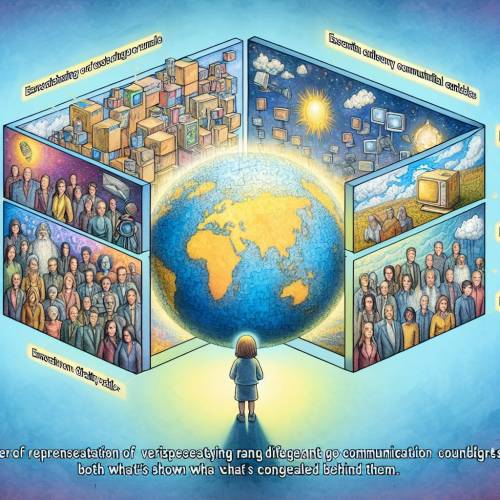You Are Valid!!
This is a reminder to queer people:
You are valid!!
You are valid if you are questioning/unsure
You are valid if you're trans but don't feel dysphoria
You are valid no matter what pronouns you use
You are valid if you're cis but not straight, or if you're straight but not cis
You are valid if you use lots and lots of labels, or if you prefer to remain unlabeled.
You. Are. Valid!
(P.S. I am one follower away from 10 followers! That's insane)
More Posts from Queka-store and Others
Queer Jews Project Day 25 - Edie Windsor and Thea Spyer

Edie and Thea first met in 1963 on the dance floor of a Greenwich Village restaurant. Edie was a computer programer at IBM, and Thea was a clinical psychologist. They started dating in 1965, and got engaged in 1967. Thea proposed with a circle diamond brooch because a ring would have led to questions and possible outing. Over the next several decades, they lived happy but hidden lives.
But Thea’s health started to decline.
So Edie and Thea got married in 2007 – in Canada – because same-sex marriage wasn’t legal in the United States. Thea died in 2008. Edie found herself with a literal broken heart – and a massive, unjust tax bill.
The Defense of Marriage Act prevented Edie from claiming the spousal inheritance tax exemption that heterosexual couples received. So Edie sued the United States Government. The case eventually made it to the U.S. Supreme Court – and Edie won. DOMA was struck down in 2013, and that set the stage for same-sex marriage to be legalized across the United States two years later.
Queer Jews Project






























Pain and hope






























For those of you who like the idea of peer respites, I just want to say these are not the only alternatives to the mainstream psych system :] Here's a big ol' list, and many/most of them are peer-run. I live in America, so a lot of this is US-based, but I've tried to make it as internationally accessible as possible!
I'll start with the live-in options. So ya'll already know about peer respites, if you read my latest post about it. There's a few more similar things out there.
Soteria Houses - More long-term (months+) community homes for folks with lived experience of psychosis/similar extreme states, with peer support, that focus on a humane and person-centered approach. Much more freedom & agency than your traditional group home.
Hurdalsjøen Recovery Center - a "medication-free" (aka medication-optional) psychiatric hospital in Norway. Allows patients to choose whether to stay on or taper/remain off psychiatric drugs. Focused on healthy eating, exercise, and recreational therapy options.
Bethel House - Similar to Soteria Houses, a homelike environment in Japan for people with schizophrenia, etc. that focuses on social reintegration.
Organizations, clubs, groups, etc:
Students With Psychosis - A peer support community with programming for students with psychosis
International Map of Hearing Voices/Intervoice networks - Non=pathological support groups for people who hear voices, see visions, etc. US directory, UK directory.
Clubhouse International - Gives people with mental illness opportunities for friendship, employment, housing, educational, and medical services all in one place. Founded by a group of friends who survived a psychiatric hospital together.
Project LETS - A radical approach to peer support and healing that has a disability justice centered approach, giving people with lived experience a voice and focusing on mutual aid. They provide peer mental health advocates, self-harm prevention, and more.
The Mad Society of Canada: A grassroots community of practice that brings together folks who want to provide non-coercive, ethical, survivor-informed mental health services/policy.
Power to the Plurals: Resources and events for people who identify as plural/multiple/systems.
The Wildflower Alliance: Grassroots peer support, training, and advocacy community based in Massachusetts.
Alternatives To Suicide (Alt2Su): Peer support groups that allow people to talk about suicidal thoughts without fear of being committed to the hospital, etc
Trainings:
Intentional Peer Support = Trauma-informed peer support training
Emotional CPR - Trauma-informed mental health support training program for the layperson
Hearing Voices Curriculum: Targeted towards mental health professionals to better understand the experience of hearing voices. Warning: It's expensive!
Cities that have a particularly awesome way of dealing with folks in crisis/with mental illness/etc:
Geel - a farming community where residents welcome people suffering with severe mental illness/distress into their homes and live with them, share work, etc (Edit: apparently Geel is a small city with like 40,000 people and not a farming community lol, I was misinformed. Thanks to @roxbot for the correction!)
Trieste - a city with a community centered system of care that integrates housing and peer support
Warmlines (generally run by peers) and Crisis Lines that don't call the cops: (Most of these are taken from this post by trans-axolotl on Crisis Lines)
Trans Lifeline: 877-565-8860, 24/7
BlackLine: 1 (800) 604-5841, has texting options
The Plural Warmline (No number, check the site)
THRIVE: text message line at 313-662-8209, 24/7
Promise Resource Network: (833) 390-7728, 24/7
Project Return Peer Support Network: (888) 448-9777 English or (888) 448-4055 Spanish, hours are Monday through Friday 2:30 PM to 10:00 PM PST and Saturday and Sunday 10:00 AM to 6:00 PM PST
Wildflower Alliance Peer Support Line: 888-407-4515, hours are 7pm to 9pm EST Monday through Thursday and 7pm-10pm EST Friday through Sunday
Key Consumer Organization: 800-933-5397, hours are 8am - 4:30pm EST, Monday - Friday.
MBRLC Peer Support Line: 877-733-7563, hours are 4 pm-7:45 pm EST every day.
US Warmline Directory (unlikely to call cops, but check with the individual line first)
Misc:
CommonGround software - A software developed by Dr. Pat Deegan (an individual who was diagnosed with schizophrenia) that allows clients to communicate their needs to their doctors more efficiently to support shared-decision making with medication.
Open Dialogue- An psychosocial approach to psychiatric services that focuses shared decision-making and dialogue between client, providers, and family (if the client wants family involved), and often more minimal use of medication.
Integrative Psychiatry - A holistic form of psychiatry that focuses on nutrition, exercise, therapy, and psychosocial factors, where medication is just an aspect of treatment. US database of integrative psychiatrists here.
I will also give a somewhat honorable mention to Mobile Crisis Teams. They are a fairly new alternative to the usual "call the cops on your local mentally ill person". They are composed of nurses, therapists, social workers, occasionally peer support workers, etc. They hook the individual up with support/resources - which can often mean forced hospitalization/forced treatment FYI - but it is a step up from being killed by cops. Look up "[city] Mobile Crisis Team" to find out if there is one in your city.
A note: Something being on this list =/= it is perfect, just that it is an alternative to what we've got. So don't come at me, lmao. Feel free to add on if you know of anything else!










(via "Oh sheep! What is the time? " Magnet for Sale by Queueka)
We carry inside us the wonders we seek outside us. Rumi










(via "A lady with her spirit at a full moon " Mouse Pad for Sale by Queueka)
People said that Tumblr isn't a great place to post original art that isn't fanart, but I'm doing it anyway because I haven't got the motivation to draw anything else

Happy pride month lads! 🧡💛🤍💙
from an aroace potato :)
A computer science student named Priyanjali Gupta, studying in her third year at Vellore Institute of Technology, has developed an AI-based model that can translate sign language into English.

Thank you and everyone who got me to 50 reblogs!
The Mosquito's Sting: A Tale of Boundaries Challenged
Once upon a time, in an enchanted kingdom, there was a mosquito that carried the West Nile fever. This mosquito bit a wealthy man and a poor one, a Jew and an Arab, a white person and a black person, women and men, hetro cisgenders and LGBTQ+ individuals. The story tells how people created protective barriers and divisions between themselves, but nature, in the form of the mosquito, pierced through these barriers and showed how easily something from each of them could seep into the other, revealing how arbitrary and temporary all these defenses and boundaries truly were.The king of the kingdom ordered the mosquito to be locked in a golden cage and asked the wisest person in the kingdom, a little girl who understood the language of all animals, to talk to the mosquito. The girl listened to the mosquito's story and told the king the moral lesson that the mosquito had taught. Instead of punishing the mosquito, they made it an important minister in the kingdom. The royal physician healed the mosquito, and the kingdom's scientists transformed it into a beautiful prince. The prince married the girl when she became old enough. She was the only one who saw the wisdom in the simple mosquito that had only come to sting.To everyone's surprise, as they did not know enough about science, it turned out that the mosquito was actually a female mosquito. So, the wise girl ended up marrying a mosquito princess who loved to wear princes' clothes. The two of them lived happily ever after, far away from all other humans who were unwilling to give up the barriers and divisions that separated them.When the people discovered that the mosquito was a female who had married a woman, they wanted to punish her. However, the girl, who was once a wise child, ran away with the mosquito princess to the mountains. There, they lived happily, far from people's eyes and the fears that drove society. They talked to animals, studied them, and understood their language. Over the years, they published scientific papers that brought human society closer to their broad worldview.
-
 genderfluidbooks reblogged this · 1 week ago
genderfluidbooks reblogged this · 1 week ago -
 captain0fcrows liked this · 1 week ago
captain0fcrows liked this · 1 week ago -
 my-syrok liked this · 2 weeks ago
my-syrok liked this · 2 weeks ago -
 resmeliorae liked this · 2 weeks ago
resmeliorae liked this · 2 weeks ago -
 kaisgayrambling liked this · 1 month ago
kaisgayrambling liked this · 1 month ago -
 theasterismtheatre liked this · 1 month ago
theasterismtheatre liked this · 1 month ago -
 sl1tcl1t liked this · 1 month ago
sl1tcl1t liked this · 1 month ago -
 deffonotathrowaway liked this · 1 month ago
deffonotathrowaway liked this · 1 month ago -
 griffinclawforlife reblogged this · 1 month ago
griffinclawforlife reblogged this · 1 month ago -
 xen04lbert liked this · 1 month ago
xen04lbert liked this · 1 month ago -
 the-aaaaa-battery reblogged this · 1 month ago
the-aaaaa-battery reblogged this · 1 month ago -
 tripleatechie reblogged this · 1 month ago
tripleatechie reblogged this · 1 month ago -
 tripleatechie liked this · 1 month ago
tripleatechie liked this · 1 month ago -
 thejohnlockedfemboy liked this · 1 month ago
thejohnlockedfemboy liked this · 1 month ago -
 aidafarre liked this · 1 month ago
aidafarre liked this · 1 month ago -
 fangartz666 liked this · 2 months ago
fangartz666 liked this · 2 months ago -
 mistlenna reblogged this · 2 months ago
mistlenna reblogged this · 2 months ago -
 auntieautumn liked this · 2 months ago
auntieautumn liked this · 2 months ago -
 forgotten-archives liked this · 2 months ago
forgotten-archives liked this · 2 months ago -
 blubary liked this · 2 months ago
blubary liked this · 2 months ago -
 optimuscrime-69 liked this · 3 months ago
optimuscrime-69 liked this · 3 months ago -
 definitely-a-human-9 liked this · 3 months ago
definitely-a-human-9 liked this · 3 months ago -
 crowanddriver liked this · 3 months ago
crowanddriver liked this · 3 months ago -
 definitelynormaldude liked this · 3 months ago
definitelynormaldude liked this · 3 months ago -
 suspensefulpen liked this · 3 months ago
suspensefulpen liked this · 3 months ago -
 coppermuncher liked this · 4 months ago
coppermuncher liked this · 4 months ago -
 midnightdan1 liked this · 4 months ago
midnightdan1 liked this · 4 months ago -
 the-liminal-masc liked this · 4 months ago
the-liminal-masc liked this · 4 months ago -
 borderpolarexpressions liked this · 4 months ago
borderpolarexpressions liked this · 4 months ago -
 lighthouseace liked this · 4 months ago
lighthouseace liked this · 4 months ago -
 trauma-official liked this · 4 months ago
trauma-official liked this · 4 months ago -
 thequeenscoffin liked this · 4 months ago
thequeenscoffin liked this · 4 months ago -
 oldmanontumbler liked this · 4 months ago
oldmanontumbler liked this · 4 months ago -
 mothsintherain liked this · 4 months ago
mothsintherain liked this · 4 months ago -
 universallydestinytaco reblogged this · 4 months ago
universallydestinytaco reblogged this · 4 months ago -
 universallydestinytaco liked this · 4 months ago
universallydestinytaco liked this · 4 months ago -
 kenji-isswagger liked this · 5 months ago
kenji-isswagger liked this · 5 months ago -
 seker-amun liked this · 5 months ago
seker-amun liked this · 5 months ago -
 irish-agender-moss liked this · 5 months ago
irish-agender-moss liked this · 5 months ago -
 ghost-of-toxic-masculinity reblogged this · 5 months ago
ghost-of-toxic-masculinity reblogged this · 5 months ago -
 ghost-of-toxic-masculinity liked this · 5 months ago
ghost-of-toxic-masculinity liked this · 5 months ago -
 isaacthef00l liked this · 5 months ago
isaacthef00l liked this · 5 months ago -
 tnysharky liked this · 5 months ago
tnysharky liked this · 5 months ago -
 1random-person liked this · 5 months ago
1random-person liked this · 5 months ago -
 ggrem4 reblogged this · 5 months ago
ggrem4 reblogged this · 5 months ago -
 ggrem4 liked this · 5 months ago
ggrem4 liked this · 5 months ago

Open minded old school & digital artist, ai lover and seller. Sencire believer in humanity and people
139 posts








